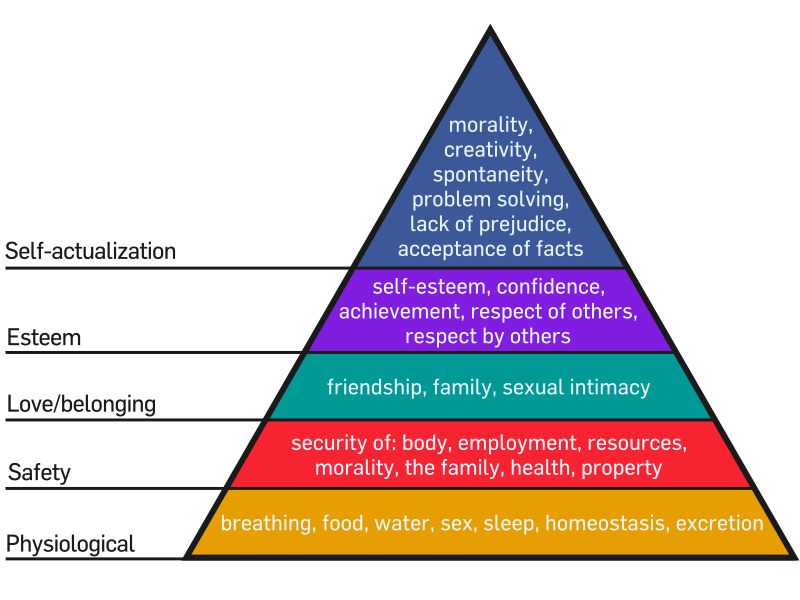
I started writing my first blog many years back, but it died very quickly within a year. Since then, I have gone through the cycle of reviving my blogging activities and then letting it die a few times over because I never managed to continually maintain them for long. Each time I began, there was a sudden burst of energy and I had this picture in my head where I would churn out article after article that many would like to read. However, over time, the initial exuberance tapers off resulting in an old, out-dated archive which no one ever visits save for myself when I’m feeling nostalgic and need a trip down memory lane.
While I was embarking on this rebirth of my writing passion, I began to wonder what it was that inherently drew me to keep writing so much? Hadn’t the past “failures” taught me that I do not really have the required journalistic aptitude or stamina? Why do I keep coming back to this only to fail time and again? This bugged me because I knew that if I didn’t have the answer, or at least attempt to seek it, this project would not be sustainable.
So, struggling with my dilemma, I decided that in my maiden article I would try and justify why I’m reanimating my seemingly dead journalism attempts. Perhaps it’s some delusion of grandeur. Perhaps it’s just my stubbornness in not wanting to admit “defeat” or failure. Or perhaps it was some other inner desire to simply say what I want to say regardless of whether anyone is interested to listen.
While I was contemplating this, and attempting to do some research, I realized that the times I had such a strong desire to write was usually when there was SOMETHING to write about, and that something was always a new thought or idea that impressed me personally. The “enlightenment” brought about by the new idea became a driving force for me to become an outlet that shared this to others. It didn’t matter that the idea did not originate from me. I bought into the idea. I felt it was something WORTH TELLING.
It’s like when you discover this brand new restaurant that had great service, exquisite taste, and good value for money. You would definitely want to share it with your friends, your relatives, your colleagues and your peers! Have you ever wondered why, though? What drives you to want to take the effort to share something as trivial as a place to eat with others? I believe we all have this urge to share with others about things that we feel strongly about. Some may deem this obnoxious at times, but we can’t deny that such tendencies do exist, and it is so prevalent that there is even a marketing concept built on this phenomenon; The Word of Mouth.
My theory, is that this tendency is based on a rooted desire to be the one who can influence others. We do it with the intention of, hopefully, having the satisfaction to be the one who introduced something new and beneficial to the betterment of our fellow man. We have the desire to make an impact, a difference in the world, even if it is just as small as seeing your friends or relatives know of and enjoy a good place to eat, and it is all thanks to YOU.
Yes, there is definitely an element of egotistical pride in being the one who first brings this to the attention of others. This is especially evident when you hear statements like “And who was the one who introduced you to it/him/her?”. This also explains why some engage in activities like matchmaking. Altruistic? Probably to some extent, but it’s also true that we get a kick out of being a change agent in someone else’s life. I tend to see it as a combination of both. We tell ourselves that we just want to help. However, the tinge of pride will always be there, and it may not be a bad thing if it somewhat encourages altruism. Regardless of what the case may be, it appears that this prideful altruism is a factor in driving people to share.
I recently had a conversation about how some people ought to be grateful for what they have instead of complaining about what they don’t. While I do agree with this sentiment, I cannot feel that we should be contented to the point where we stop being dissatisfied with where we are. That leads only to stagnation in my opinion. Interestingly, Maslow’s Hierarchy of needs comes to mind. We know there are people who do not even have their basic needs met (bottom of the pyramid, the physiological needs) and we should therefore be grateful that we (may) have at least attained the second level, the safety needs? Do we then stop fighting for the next level of needs to be met? I do not see it as ungratefulness if we push for it, even while we are thankful we are not at the bottom. They are not mutually exclusive.

One of the key points of Maslow’s Hierarchy is that the highest need that a man can have, is for self-actualization. This is the need to realize one’s full potential, to become everything that a person is capable of becoming. Evidently, this relates to the concept of us trying our utmost best to influence the world around us, to express ourselves the best way we can, to make an impact in the lives of those around us.
It is important to note that this psychological theory has been criticized as it was formed based on individualistic qualities and disregards other societies which focus more on collective qualities. The basis for the hierarchy is thus brought into question; Do we all really aim for and value self actualization as the highest need? I then thought about this from the perspective of an Asian. Admittedly, we as Asians are more of a collectivist society and we worry constantly about “face”, or what others think about us. This is a domineering trait in most Asian cultures, although there are exceptions particularly those who are exposed to more “Western” influences. Again, no judgement calls here, but it does appear that those who adopt more “Western” beliefs tend to also be more individualistic.
If it were true, then according to Maslow’s Theory, we as Asians would more or less stop at esteem, where achievement and respect from others would be highest valued. This could explain why Asians tend to focus on bread and butter issues and there is a constant pressure to conform to the norm rather than to pushing self expression. The Asians who DO engage in self expression, more often than not tend to have been influenced by exposure to other cultures and values (the power of Western Culture through Hollywood and MTV). Conversely, the ones with a more Asian mindset tend to keep their self expressions in check.
So how does this relate back to my desire to write? I readily admit that I have been heavily influenced by Western culture, much more so than Asian ones. Yes I do retain many Asian traits, but since I grew up with English as my first language, and have been consuming American cartoons, movies and music for as long as I can remember, I would concede that I tend to identify with Maslow’s Hierarchy.
I have always been a big fan of TED talks. I have also tried to introduce others to TED (again, I’m trying to share this IMHO amazing concept with them). Have you ever wondered why TED Talks are so engaging and so interesting? Why do so many count it a privilege to be given the opportunity to speak at TED? It is a platform where we can share the newest ideas and information to others in the hopes that they will better themselves with it. The tagline for TED, is the phrase “Ideas worth spreading”. It appears the sharing of an idea, especially an idea that many believe is good, is something that invokes excitement and something that drives people to organize something like that.
We all have a desire to be the best, greatest person we can be, even if you are more “Asian”. We also desire to spread our influence, to see the effect we have on the lives of others. We take pride in sharing with others because when we come to know something that we believe is beneficial and good for us, we share it in hopes that we can also help make a difference by bringing that same benefit to them. This is the reason why when I feel enlightened, either by a new thought or a new idea, or if I have a strong opinion which may present a fresh perspective to an issue, I fire up my thinking juices and try to convert all the threads of thought in my mind into a decent piece of reading that will, hopefully, make a difference to someone… It remains to be seen if I will be disappointed.
